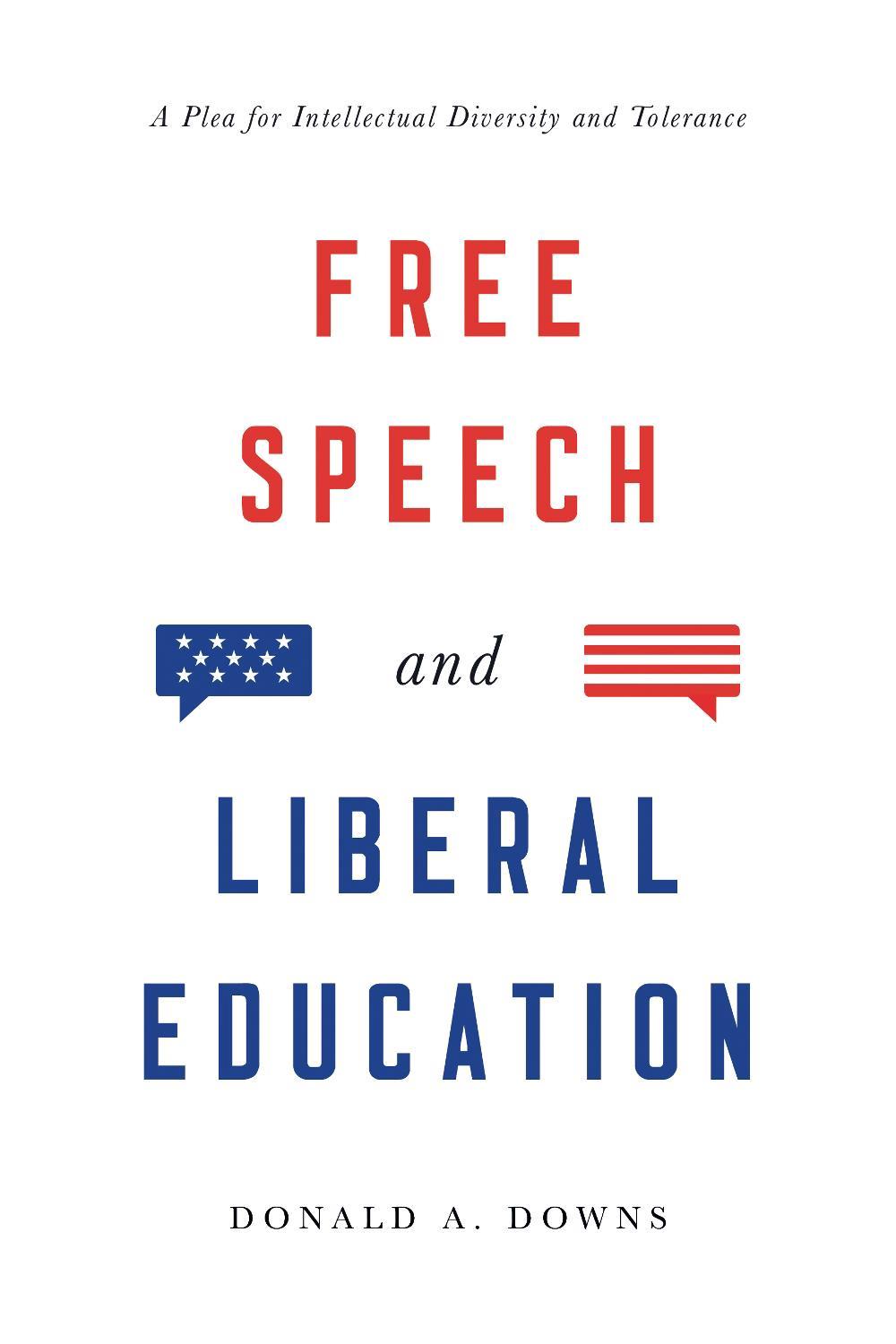
When you click on links to various merchants on this site and make a purchase, this can result in this site earning a commission. Affiliate programs and affiliations include, but are not limited to, the eBay Partner Network.
Free Speech and Liberal Education: A Plea for Intellectual Diversity and Toleran

- Item No : 146567627437
- Condition : Brand New
- Brand : No brand Info
- Seller : the_nile
- Current Bid : US $35.76
-
* Item Description
-
The Nile on eBay

Free Speech and Liberal Education
by Donald Alexander Downs
Free Speech and Liberal Education examines the empirical, philosophical, and remedial dimensions of the battle over free speech and academic freedom in American higher education today.
FORMAT
HardcoverLANGUAGE
EnglishCONDITION
Brand New
Publisher Description
The status of free speech and academic freedom in the nation's colleges and universities has become an explosive issue. Reports of disruptions and dis-invitations of speakers and a host of new speech-inhibiting policies instituted by campus bureaucracies are now commonplace. Critics claim that these actions and measures have smothered the open and honest discourse inside and outside of the classroom that is so necessary for a meaningful and vibrant education to take place. Others consider the fears of crisis overblown, discerning the harms as less extensive in the vast domain of higher education than critics acknowledge.Drawing on his extensive research, teaching, and practical experience as a free speech and academic freedom leader at the University of Wisconsin-Madison and nation-wide, Donald A. Downs portrays the university as an "intellectual polis" in which free and honest academic discourse should pervade the campus. His unique approach addresses the experiential, empirical, strategic, and philosophical dimensions at stake.Free Speech and Liberal Education: A Plea for Intellectual Diversity and Tolerance dissects the nature, extent, and causes of the speech suppression that exists, emphasizing the need for intellectual diversity and how repression often co-exists with counter-forces that need to be energized and mobilized in what Downs portrays as the "embattled" status of academic free speech; the character of the harms the new policies and actions pose to liberal education; broader "structural and societal threats to academic freedom; how to mobilize to protect campus freedom using resources inside and outside of the campus; and, most importantly, why robust free speech and academic freedom are so important to both liberal education and the prospects of liberal democracy.
Table of Contents
Introduction 1. Framing the Problem 2. What Is the University? Truth, the Intellectual Polis, and Historical Change 3. Free Speech and Academic Freedom 4. Major Threats to Academic Free Speech: Contemporary Policies and Related Aspects 5. Major Threats: Structural and More Universal Aspects 6. Contemporary Surveys: Making America Safe for Charlie Brown and Peanuts 7. What's at Stake: Why Free Speech Matters to Individuals and the Republic 8. Remedies: Campus Mobilization and Administrative Reform
Long Description
The status of free speech and academic freedom in the nation's colleges and universities has become an explosive issue. Reports of disruptions and dis-invitations of speakers and a host of new speech-inhibiting policies instituted by campus bureaucracies are now commonplace. Critics claim that these actions and measures have smothered the open and honest discourse inside and outside of the classroom that is so necessary for a meaningful and vibrant education to take place. Others consider the fears of crisis overblown, discerning the harms as less extensive in the vast domain of higher education than critics acknowledge. Drawing on his extensive research, teaching, and practical experience as a free speech and academic freedom leader at the University of Wisconsin-Madison and nation-wide, Donald A. Downs portrays the university as an "intellectual polis" in which free and honest academic discourse should pervade the campus. His unique approach addresses the experiential, empirical, strategic, and philosophical dimensions at stake. Free Speech and Liberal Education: A Plea for Intellectual Diversity and Tolerance dissects the nature, extent, and causes of the speech suppression that exists, emphasizing the need for intellectual diversity and how repression often co-exists with counter-forces that need to be energized and mobilized in what Downs portrays as the "embattled" status of academic free speech; the character of the harms the new policies and actions pose to liberal education; broader "structural and societal threats to academic freedom; how to mobilize to protect campus freedom using resources inside and outside of the campus; and, most importantly, why robust free speech and academic freedom are so important to both liberal education and the prospects of liberal democracy.
Details
ISBN1948647648Year 2020ISBN-10 1948647648ISBN-13 9781948647649Format HardcoverAuthor Donald Alexander DownsPages 250Short Title Free Speech and Liberal EducationLanguage EnglishSubtitle A Plea for Intellectual Diversity and ToleranceUK Release Date 2020-04-07Imprint Cato Institute,U.S.Place of Publication Washington DCCountry of Publication United StatesNZ Release Date 2020-02-25US Release Date 2020-02-25Publisher Cato Institute,U.S.Publication Date 2020-02-25Audience GeneralAU Release Date 2020-02-24


-
- NO GRID Survival Projects
- $ 37.00
















